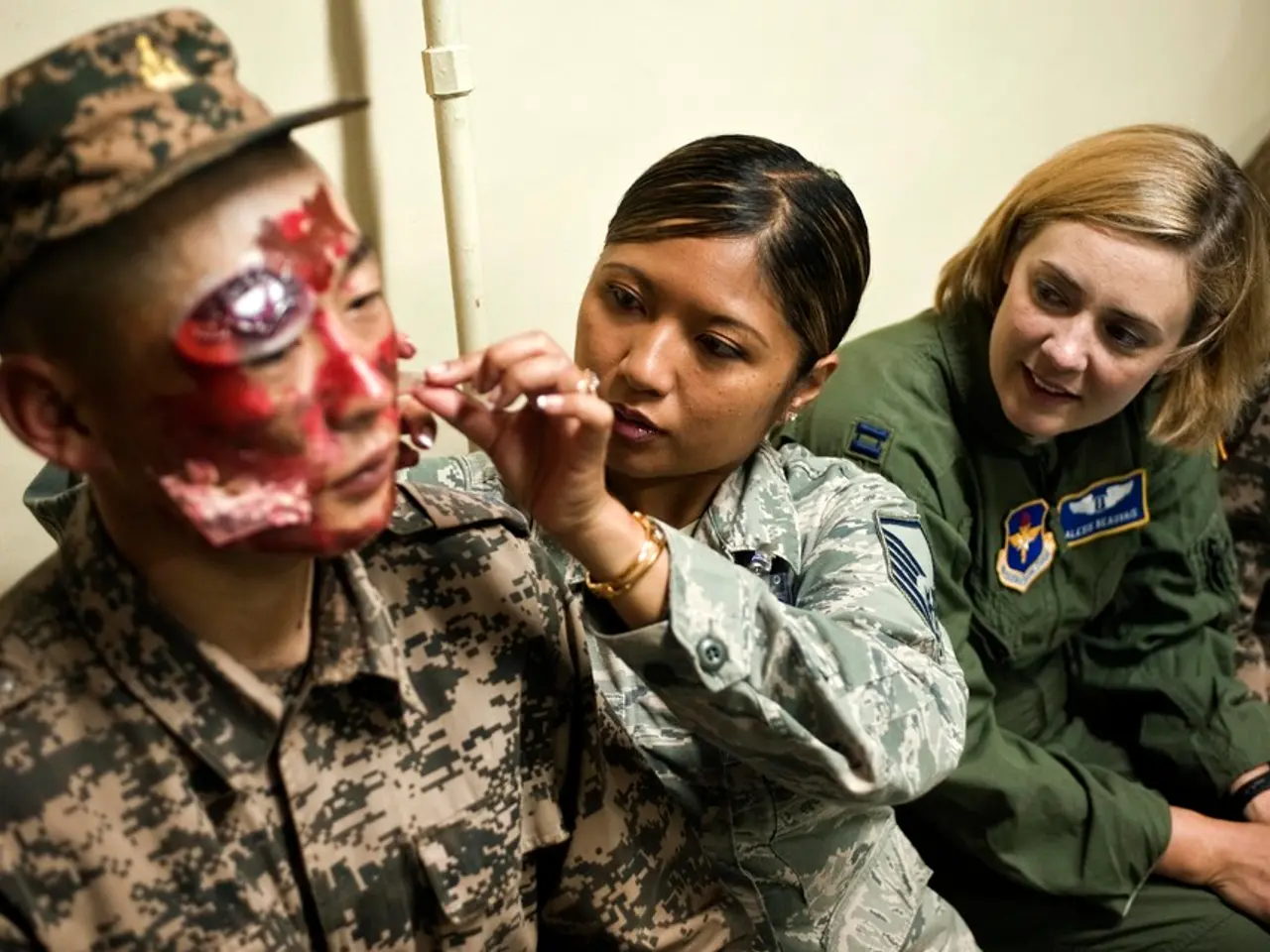Governor Evers signs legislation broadening healthcare availability, offering fresh prospects for nurses in delivering services
Wisconsin Gov. Evers Signs APRN Modernization Act, Expanding Nursing Care
Gov. Tony Evers has signed a bipartisan bill into law, marking a significant milestone for the healthcare sector in Wisconsin. The APRN Modernization Act (2025 Wisconsin Act 17) establishes a new licensure opportunity for advanced practice registered nurses (APRNs), including nurse practitioners, certified nurse-midwives, clinical nurse specialists, and certified registered nurse anesthetists (CRNAs), enabling them to practice independently without physician oversight under certain conditions[1][4][5].
The new legislation aims to expand healthcare service access for Wisconsinites by creating a dedicated license category for APRNs. This move not only broadens career opportunities for registered nurses (RNs) but also increases the number of advanced practitioners in the state[4][5].
Key details and requirements under the legislation include:
- New Licensure Category: The law creates a new certification specifically for APRNs, paving the way for RNs to become APRNs, thereby expanding their career prospects[4][5].
- Independent Practice: APRNs can practice independently after fulfilling training and supervision conditions, no longer requiring mandatory physician collaboration for full practice, except in limited areas like pain management services where continued collaboration is mandated[1][2].
- Experience Requirement: APRNs must complete a minimum of 3,840 hours (approximately two years) of professional nursing practice in a clinical setting under physician or dentist supervision before practicing independently[2][4].
- Scope and Authority: Licensed APRNs under this law are authorized to issue prescriptions, use the APRN title, and delegate specific clinical duties to qualified healthcare personnel, aligning Wisconsin’s rules with national standards[5].
- Title Usage Restrictions: Those licensed by the Board of Nursing who hold a doctorate degree cannot use the title "doctor" unless specifying the field of the degree to avoid confusion[2].
Approximately 8,000 Wisconsin RNs, predominantly nurse practitioners, are estimated to qualify under this new law to become APRNs and practice independently once requirements are met[1][4].
Gov. Evers expressed pride in the expansion of opportunities for nurses to grow their careers and create a system for more advanced practitioners in Wisconsin. He emphasized the crucial role nurses play in the healthcare workforce and thanked Sen. Testin, Sen. Cabral-Guevara, Rep. Kurtz, and Rep. Subeck for their contributions to the bill[6].
Numerous nursing and physician groups were involved in the process of getting the bipartisan bill passed, reflecting a collaborative effort to improve healthcare access and service delivery in Wisconsin. With this new law, APRNs who qualify under the new bill will have the opportunity to work independently, contributing to a more efficient and accessible healthcare system for all Wisconsinites.
Science advances in health-and-wellness are imminent with the independent practice of APRNs, thanks to the APRN Modernization Act in Wisconsin, which empowers these advanced practitioners to make evidence-based decisions in their respective fields. This legislation will also foster new research opportunities as more APRNs pursue careers in science and academia due to expanded career prospects.




